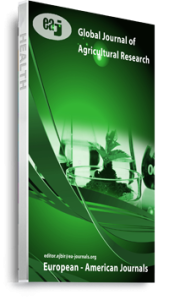Okra is an economically important vegetable crop cultivated in the tropical and subtropical parts of the world. Advocacy for consumption of local vegetables like okra could help to enhance food security and combat malnutrition in developing countries. Okra is a multipurpose crop due to the various uses of its fresh leaves, buds, flowers, capsules, seeds and seeds. The focus of the study is to evaluate the antimicrobial effects of aqueous leaf extracts of V. amygdalina against post harvest bacterial associated with okra. Fresh leaves of the test plant were collected, air dried, and pulverized. Hundred grams of pulverized leaves of the test plant was mixed with 200ml of cold water a room temperature and left overnight. This was later filtered and the filtrate served as extract. Five bacterial strains were isolated from the the okra viz: Bacillus subtilis, B. panthotenticus, B. cereus, Psedumonas chlororaphis, Aeromonas hydrophila. Agar well diffusion test method was used to determine the antibacterial capacity of the test plant. 20% aqueous extract of the test plant most inhibited Bacillus subtilis, Pseudomonas chlororaphis, Aeromonas hydrophila, B. cereus and B. panthotenticus by 0.83, 1.65, 1.19, 1.51 and 1.43% respectively. It is shown from the result that higher concentrations of aqueous extract favoured higher inhibition of bacterial growth.
Keywords: Antibacterial, Okra, V. amygdalina

